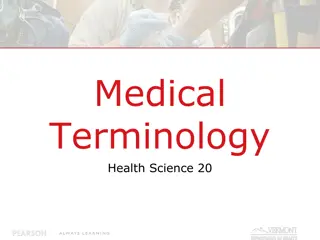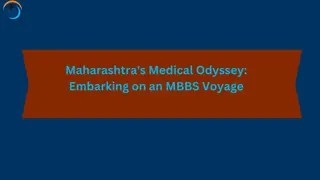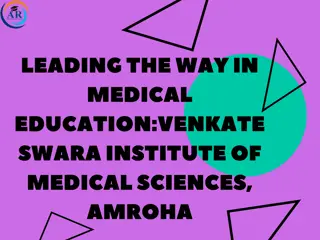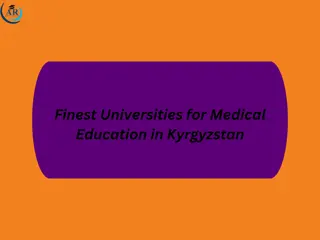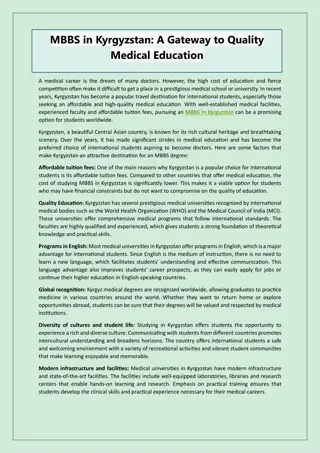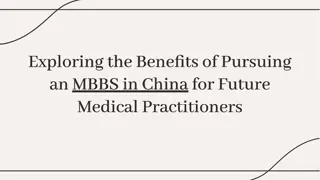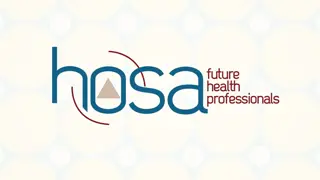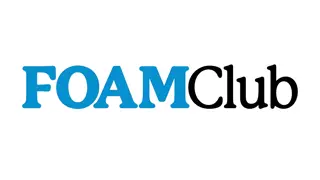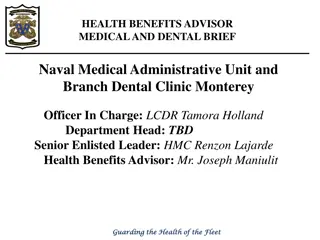Understanding Assessment in Medical Education
Exploring the concepts of assessment in medical education, including defining assessment, types of assessment, reliability, validity, and aligning assessment methods with intended learning outcomes. The importance of constructive alignment and the impact of assessment on learning outcomes are also discussed.
Download Presentation

Please find below an Image/Link to download the presentation.
The content on the website is provided AS IS for your information and personal use only. It may not be sold, licensed, or shared on other websites without obtaining consent from the author. Download presentation by click this link. If you encounter any issues during the download, it is possible that the publisher has removed the file from their server.
E N D
Presentation Transcript
Dr Ramesh Mehay TPD Bradford GP Training Scheme ASSESSMENT And its alignment
EXERCISE Useful questions to think about What is assessment? What do we want to achieve? How do we measure success? How do we know that the measure of success is the right one? In groups 5 minutes Define assessment and think about different types of assessment YOU have undergone write on flipchart. What we do know is that assessment leads to anxiety
DEFINITION Processes and instruments applied to measure learning achievements
MATCHING METHOD OF ASSESSMENT TO ILO Constructive alignment Why does the driving test have a theory and the practical? Isn t the practical good enough? Can you link this with Bloom s taxonomy?
CONSTRUCTIVELY ALIGNING A NEW TEACHING SESSION Designing a teaching session the ACME way A is for setting Aims & Intended Learning Outcomes (ILOs) C is for defining Content M is for exploring Methodologies E is for the Ending (= Summarising, Evaluation, Assessment & future Learning) And it works like this: Define the Aims and ILOs (A). This is the most crucial step. Then: Use the Aims & ILOs (A) to define the Content (C) Use the Aims & ILOs (A) to select the Methodology (M) Use the Aims & ILOs (A) to construct the Evaluative Assessment (E).
ASSESSMENTS NEED TO BE RELIABLE AND VALID. Reliable? (competence level) Valid? (Bloom, Miller) Inverse relationship.
EXERCISE MRCGP COMPONENTS Reliability vs Validity.
THE ASSESSMENT DRIVES THE LEARNING For many students, assessment is not an educational experience in itself, but a process of guessing what the teacher wants . McLaughlin & Simpson (2004) An assessment can be a powerful way of making a trainee learn something but do they engage in it with their hearts? And doesn t it just cause unnecessary anxiety which can mask true performance? 1. The BIG question is how do we drive deep learning and not just teach to the test? 2. Is CPD, performance monitoring and feedback the way to go?
Summative Assessment Single process like an exam. Formative Assessment Continuous process that occurs throughout the training period. Is about helping the learner develop. Giving the learner a ticket or certificate to proceed. Results in a grade of competence. Results in a certificate or grade of competence. Often quite cold, remote and detached from teaching. Identifies strengths and weaknesses. Results in developmental feedback. Results in a Personal Development Plan. Is often seen as a negative process e.g. Thank goodness the AKT is over. Examples in GP training: AKT, CSA, WPBA (COTs, mini-CEXs, CBDs etc) Is seen as a positive process because it s all about helping the trainee, not telling them off. Examples in GP training CS metings, ES meetings, PCA, RCA, Appraisal Summative assessment is an assessment OF learning. Formative assessment is an assessment FOR learning. In summative assessment, the trainee tries to hide what they are bad at. In formative assessment, they should be comfortable about displaying it.




